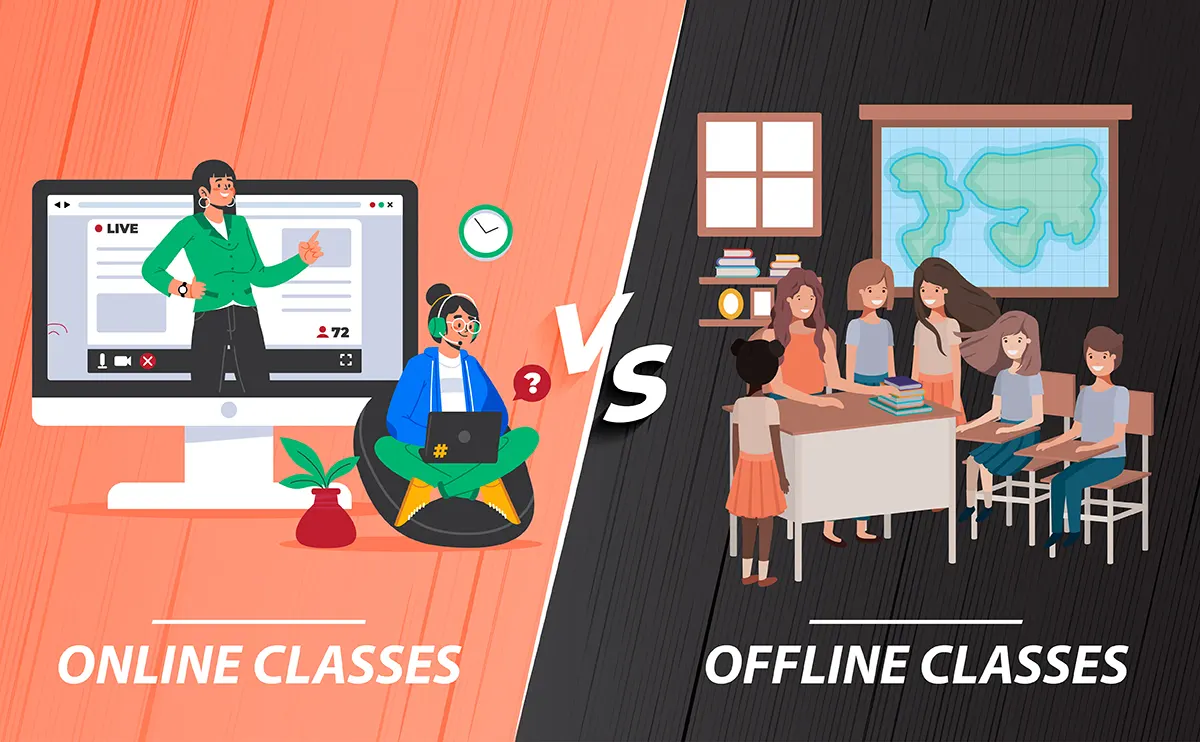Online Classes vs Offline Classes: Which is Superior?
Education has undergone significant transformation in recent years, particularly with the rise of digital learning.
A hotly debated issue today is whether online classes can match the effectiveness of offline classes. Each approach has its
unique advantages and disadvantages, and the ideal choice often hinges on an individual’s specific requirements and
circumstances.
Online Classes: Flexibility and Accessibility
The popularity of online learning stems from its flexibility. Students can access lessons, assignments, and study materials at any time and from any location, which is beneficial for those juggling other commitments like work. Platforms such as Zoom, Google Meet, and various learning management systems facilitate distance learning. Another significant advantage is accessibility.
Online classes enable students from remote or rural regions to enroll in top institutions without relocating. Additionally, they
provide self-paced learning opportunities, which can be advantageous for students who require extra time to grasp certain
subjects.

Offline Classes: Traditional and Structured
Many still prefer offline or traditional classroom learning. The structured setting encourages students to remain disciplined, learn directly from instructors, and engage in discussions or lab work. The social aspect of offline classes is also crucial. Students enhance their communication skills, learn to collaborate in groups, and build friendships that extend beyond the classroom. This environment is particularly vital for younger students in developing their character and personality. Conversely, offline classes offer less flexibility. Students are required to follow a strict timetable, and traveling to and from school can take up a considerable amount of time.

Conclusion
Ultimately, the choice between online and offline education comes down to personal preferences, learning styles, and specific goals. Many institutions have embraced a hybrid approach, combining the best of both worlds, offering flexibility while maintaining direct engagement. Whether you prefer the convenience of online learning or the structured environment of offline classes, the key is to find what works best for your individual needs and circumstances. As the future of education continues to evolve, both options will play crucial roles in shaping how we learn, grow, and adapt in an increasingly digital world.



